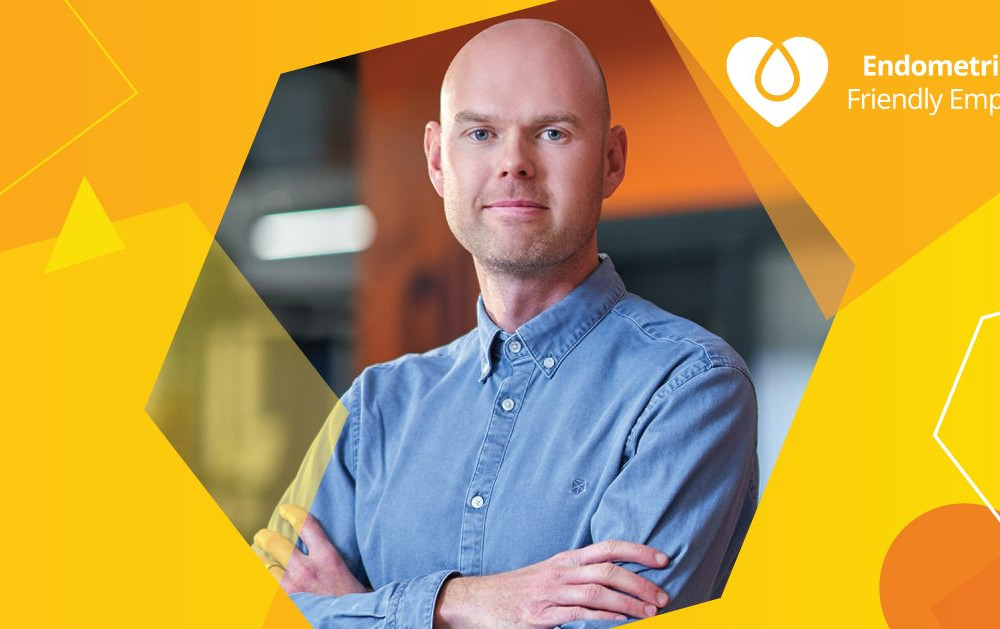
Every March, people unite to show their support for women affected by endometriosis. It’s a condition that can have a significant impact on a person’s life and affects ~1 in 10 women worldwide. But what strikes me, are the personal stories from sufferers who have endured years and years of pain and misery, either because of a lack of diagnosis or a feeling that they are weak minded; because they are unable to deal with a pain that society perceives as ‘normal’.
A couple of years ago, while doing some research for a client project, I came across an advertising campaign called ‘Womb Stories’. Created by AMV BBDO for consumer health brand Bodyform, the ad is extremely hard-hitting, and demonstrates, through art, animation, and music, what menstruation is really like. I mean REALLY like. I decided to share it with the Onyx Health team, not only to provide creative inspiration, but to also open the possibility that we could achieve more on a personal and professional level, by building on the work the agency has already done in the women’s health space.
The more I discussed this possibility with the team, the more it made sense. As a communications agency, and a team of creatives, why wouldn’t we want to tackle the challenge of breaking down taboo’s, inspiring change, and changing perceptions to help people in need. Why wouldn’t we want to create ways in which hidden truths can become common knowledge, and new actions taken by governments, industry and primarily, in the world of healthcare, professionals and policy makers. That’s the ambition of all communicators…right?
Fast forward to now, and this has become a shared vision across the agency for two reasons:
1) We have a deep-rooted passion for women’s health. 60% of our team are female including our Founder and Director Karen Winterhalter, and there is a clear passion for the subject within our ranks. From gender inequalities to hormonal contraception and fertility expertise, we’ve accumulated a wealth of knowledge and we want to share it.
2) We have created an empathetic culture. The Onyx Health team are incredible, and our culture is one of empathy because we appreciate that to create a high performing team, we must respect life outside of work and support each other throughout the good and bad. As an employer we seek to understand the personal challenges that individuals within our team face; physical or mental. This empathetic culture lends itself well to the issues faced across both men’s and women’s health.
In pursuit of this vision, I’m pleased to say that this month we became an Endometriosis Friendly Employer. This means that we have a policy and support network in place to help an employee who suffers with the condition. Throughout the course of this campaign, we discovered a member of our own team suffered from endometriosis but had never made us (or any prior employer) aware, and I expect there will be future members of our team that will also be afflicted. Hopefully this is the first step to create the safe environment, in which our employees can become open with teammates about their experience and the difficulties it presents, and enable us to better support these colleagues.
So far, I’ve talked a lot about women’s health, but men’s health is also key in our quest for success as an empathetic employer. There is a great deal of disparity in men and women’s health, some within the societal and cultural approaches to the two genders, such as R&D funding, diagnosis, and treatment, but also within pathology and presentation of disease. Men and Women’s genetics differ; both possess approximately 20,000 genes, but more than 6,500 operate differently in men and women and this sex bias of genes influences disease susceptibility and may play a role in the efficacy of treatments and new drug development research.
1 in 8 men will get prostate cancer, and I’ve suffered loss in my own family from this disease. Yes, it’s more common in the over 50’s but that’s not to say it doesn’t affect men of a younger age too.
And men, traditionally, find it harder to talk about health and wellbeing than women due to cultural norms. We have a growing number of young families in our team and often the mental wellbeing of the father is overlooked before, during and after birth. I know all too well about the stresses and hurdles presented in terms of being the best father and husband possible, while working hard to earn a living and to progress in a chosen career.
Men and women’s health poses different challenges but are equally important. We’re deeply passionate about the subject matter, we have knowledge and expertise, we have empathy, and we have a burning desire to help men and women to be the best versions of themselves. We want to help individuals to tell their stories and we want to educate the experts that can help create change, because people shouldn’t suffer longer than they must, especially when a diagnosis can be made, and treatment is available.
The journey for better women and men’s health is just beginning for us, but already we feel like we are contributing, and we want to do more.